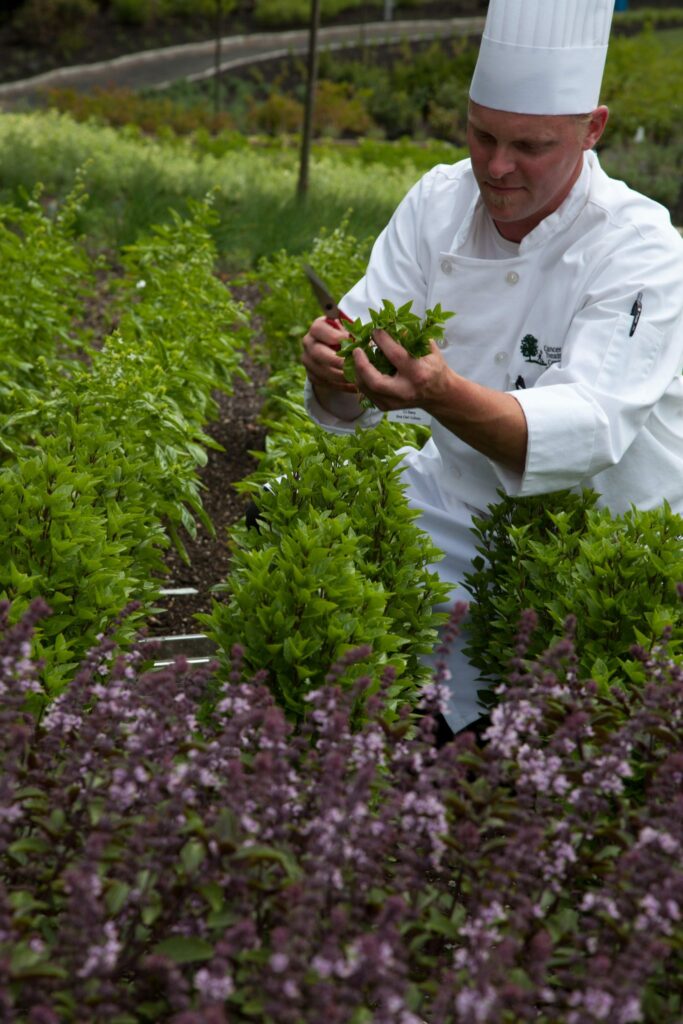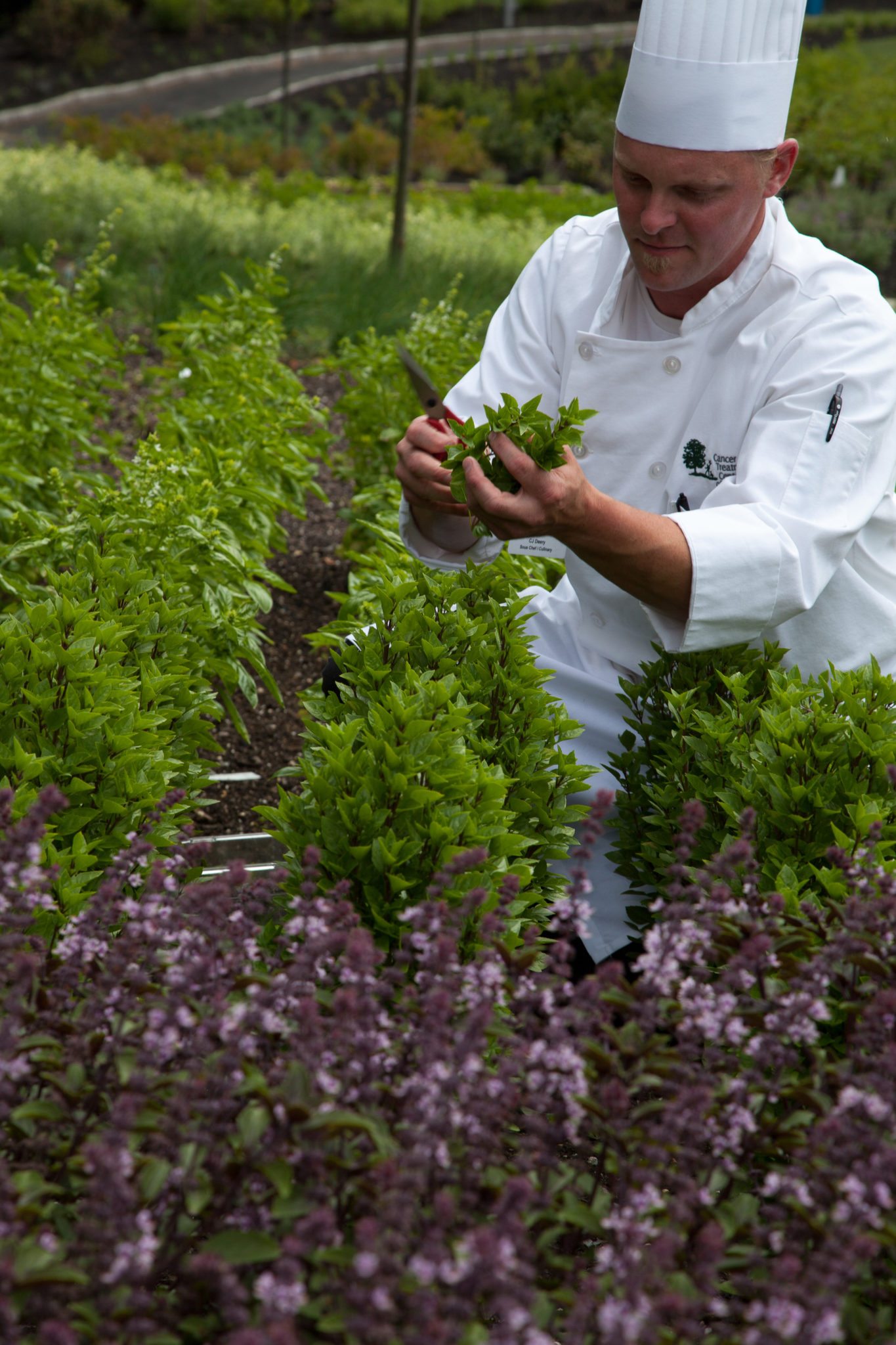Going Organic


by Laurie Wertich, adapted from Cancer Fighters Thrive magazine
Wander the produce aisles of any grocery store and you’ll face a wide array of choices: organic, conventional, natural, local, and more. With so many options, no wonder it’s hard to decipher what the optimal choices are. Do you need organic food—along with its hefty price tag? There is no definitive answer, which is why you must learn to discern the pros and cons of conventional versus organic food as well as identify your own nutritional motives and goals.
What Is Organic Food?
Organic food is grown without the use of chemical pesticides and fertilizers, biotechnology, and irradiation. Organic farming practices help promote soil and water conservation and reduce pollution. Furthermore, organic foods carry lower levels of toxins such as pesticides. In contrast, conventional farming practices employ the use of chemical fertilizers, pesticides, herbicides, antibiotics, and growth hormones.
Identifying Organic Food
The US Department of Agriculture (USDA) has established an organic certification program with strict standards that regulate how foods are grown, handled, and processed. Only foods that are grown and processed according to USDA Organic standards can be labeled “organic.” Many organic producers choose to use the USDA Organic seal to indicate that their products meet organic standards; however, identifying organic products is not always so simple.
When produce and animal products are labeled “USDA Organic,” you can rest assured that farmers have followed organic farming practices. Packaged foods, on the other hand, are a bit trickier to decipher:
“100 Percent Organic”: The product is completely organic.
“Organic”: At least 95 percent of the ingredients must be organic.
“Made with organic ingredients”: At least 70 percent of the ingredients must be organic. (Products labeled “made with organic ingredients” cannot bear the USDA Organic seal.)
Is Organic Food Better?
According to registered dietitians at Cancer Treatment Centers of America® (CTCA) in Philadelphia, organic food is not necessarily “better”—just different. “As far as the nutrient content of foods, there is really no statistically significant difference in organically grown versus conventionally grown food,” explains Director of Nutrition Nhu Huynh, RD. And organic does not necessarily mean healthy, especially when it comes to packaged foods. It’s still important to read labels and to choose products that are high in fiber and whole grains and low in fat and sodium. She adds that research in this area is ongoing but one thing is for sure: conventionally grown foods carry higher levels of toxins such as pesticides, herbicides, antibiotics, and hormones.
What Are the Benefits of Organic Food?
Organic foods can provide a variety of benefits. For starters, organic foods contain a lower pesticide load than conventional foods. This means that organic produce doesn’t have chemical pesticides and herbicides and that organic meats and dairy products don’t contain antibiotics and growth hormones.
Should You Switch to Organic?
“Organic is great, but it may not be a cost-effective option for everyone,” Huynh says. “That’s why we always tell our patients that it is most important to eat lots of fruits and vegetables, whether organic or not.”
If you want to reduce your exposure to pesticides without breaking the budget, you may choose to buy a mix of organic and conventional produce. The Environmental Working Group produces a list of fruits and vegetables that carry the highest toxic load of pesticides—the “Dirty Dozen” (see list below). In contrast, the “Clean Fifteen” lists the 15 fruits and vegetables that carry the lowest levels of pesticides.
The Bottom Line
The bottom line is that research on differences between organic and conventionally grown produce is ongoing, but plant foods, regardless of organic status, are always a wholesome choice and contribute to a healthful diet. Choose organic when you can and focus on eating a healthy diet rich in fruits and vegetables.
The Dirty Dozen
When grown conventionally these fruits and vegetables carry the highest load of pesticides:
- Apples
- Celery
- Strawberries
- Peaches
- Spinach
- Nectarines (imported)
- Grapes (imported)
- Sweet bell peppers
- Potatoes
- Blueberries (domestic)
- Lettuce
- Kale/Collard Greens
The Clean Fifteen
These fruits and vegetables carry low levels of pesticides, so it’s not critical to buy organic:
- Onions
- Sweet corn
- Pineapples
- Avocado
- Asparagus
- Sweet peas
- Mangoes
- Eggplant
- Cantaloupe (domestic)
- Kiwi
- Cabbage
- Watermelon
- Sweet potatoes
- Grapefruit
- Mushrooms